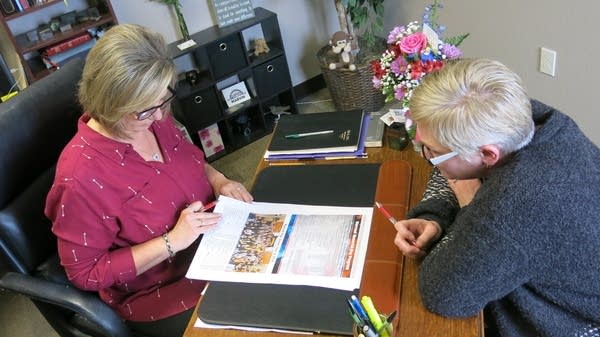After 121 years, the Warroad Pioneer newspaper closes its doors

Warroad Pioneer publisher Rebecca Colden and editor Koren Zaiser proofread the final edition of their paper on Monday.
John Enger | MPR News
Go Deeper.
Create an account or log in to save stories.
Like this?
Thanks for liking this story! We have added it to a list of your favorite stories.


